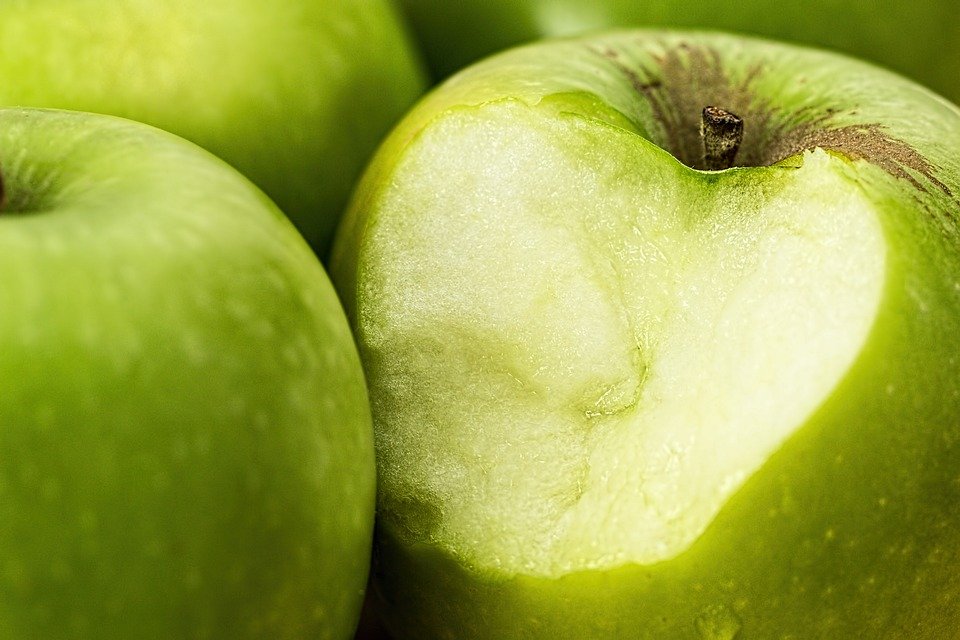Lose Weight Probiotics: A Natural Way to Shed Pounds and Boost Your Health
In today’s fast-paced world, weight loss has become a hot topic. Many people are looking for ways to shed those extra pounds and achieve their dream physique. While there are numerous diets and weight loss programs available, incorporating probiotics into your daily routine can be a game-changer. Probiotics, often referred to as “good bacteria,” offer a natural and effective approach to weight management. In this article, we will explore how probiotics can support weight loss, the science behind their effectiveness, and the best ways to incorporate them into your diet.
Understanding Probiotics: The Good Bacteria
Before delving into the weight loss benefits of probiotics, let’s understand what they are. Probiotics are live microorganisms that provide health benefits when consumed in adequate amounts. These beneficial bacteria primarily reside in our gut and play a crucial role in maintaining a healthy digestive system. They help break down food, enhance nutrient absorption, and support the immune system. Probiotics can be found in various foods and supplements, with the most common strains being Lactobacillus and Bifidobacterium.
The Link Between Probiotics and Weight Loss
1. **Regulating Gut Health**: A healthy gut is essential for weight management. Probiotics promote a balanced gut microbiome, which influences various metabolic processes. When our gut is populated with beneficial bacteria, it can effectively break down food and absorb nutrients. On the other hand, an imbalance in gut bacteria can lead to weight gain and metabolic disorders.
2. **Reducing Calorie Absorption**: Certain strains of probiotics have been shown to reduce the absorption of dietary fat. They do this by breaking down complex fats into simpler forms that are harder for the body to absorb. As a result, fewer calories from fat are stored in the body, aiding in weight loss.
3. **Controlling Appetite and Cravings**: Probiotics can influence our brain-gut connection, potentially helping to control appetite and cravings. They produce short-chain fatty acids (SCFAs), which send signals to the brain to regulate hunger and fullness. By promoting feelings of satiety, probiotics can prevent overeating and support weight management.
4. **Reducing Inflammation**: Chronic inflammation can hinder weight loss efforts. Probiotics have been shown to reduce inflammation in the body by modulating the immune response. By reducing inflammation, probiotics may improve metabolic function and promote weight loss.
Choosing the Right Probiotics for Weight Loss
Not all probiotics are created equal, and selecting the right strains is crucial for achieving weight loss benefits. When choosing probiotics, look for the following:
1. **Lactobacillus Gasseri**: This strain has shown promising results in reducing belly fat. It may also improve insulin sensitivity and reduce the risk of metabolic disorders.
2. **Lactobacillus Rhamnosus**: Known for its ability to support weight loss, this strain has been found to reduce body weight and waist circumference.
3. **Bifidobacterium Lactis**: This strain has been associated with improved metabolic health and weight management. It may also help reduce inflammation in the body.
4. **Lactobacillus Plantarum**: Research suggests that this strain may help regulate fat metabolism and promote weight loss.
Incorporating Probiotics into Your Diet
Now that we understand the weight loss benefits of probiotics and the strains to look for, let’s explore how to incorporate them into your diet:
1. **Yogurt and Fermented Foods**: Yogurt, kefir, sauerkraut, kimchi, and other fermented foods are excellent sources of probiotics. Look for options labeled as containing live and active cultures.
2. **Probiotic Supplements**: If you find it challenging to consume enough probiotics through food alone, consider taking probiotic supplements. Look for supplements with a variety of strains and colony-forming units (CFUs) in the billions.
3. **Prebiotic-Rich Foods**: Prebiotics are dietary fibers that nourish the probiotics in our gut. By consuming prebiotic-rich foods like onions, garlic, bananas, and oats, you can enhance the effectiveness of probiotics.
4. **Probiotic-Enriched Beverages**: Many beverages, such as kombucha and certain types of juices, are now available with added probiotics. These can be a convenient way to increase your probiotic intake.
Conclusion: Embrace the Power of Probiotics for Weight Loss
Incorporating probiotics into your weight loss journey can be a natural and effective way to achieve your goals. With their ability to regulate gut health, reduce calorie absorption, control appetite, and reduce inflammation, probiotics offer a holistic approach to weight management. By choosing the right strains and incorporating probiotic-rich foods and supplements into your diet, you can harness the power of these beneficial bacteria and enhance your overall health. So, why not give probiotics a try and unlock the potential for a healthier, slimmer you?
Most Asked Questions About Lose Weight Probiotics
What are probiotics and how can they help with weight loss?
Probiotics are live microorganisms that can provide numerous health benefits when consumed in adequate amounts. When it comes to weight loss, probiotics can help in several ways. Firstly, they can improve digestion and nutrient absorption, which can lead to better metabolism and weight management. Secondly, certain strains of probiotics have been found to reduce inflammation in the body, which is known to contribute to weight gain. Lastly, probiotics can also help regulate appetite and reduce cravings, making it easier to stick to a healthy diet.
Important information:
1. Probiotics are live microorganisms that offer health benefits.
2. Probiotics can improve digestion and nutrient absorption.
3. Certain strains of probiotics can reduce inflammation and regulate appetite.
Which probiotic strains are most effective for weight loss?
While many probiotic strains can potentially aid in weight loss, some have shown more promising results than others. One of the most studied strains is Lactobacillus gasseri, which has been found to reduce belly fat and body weight. Other strains like Lactobacillus acidophilus and Bifidobacterium lactis have also shown potential in weight management. However, it’s important to note that the effectiveness of probiotic strains may vary from person to person, and it’s always best to consult with a healthcare professional before starting any new supplementation.
Important information:
1. Lactobacillus gasseri is a well-studied strain for weight loss.
2. Lactobacillus acidophilus and Bifidobacterium lactis have also shown potential.
3. Effectiveness may vary, and professional advice is recommended.
How can probiotics improve digestion and nutrient absorption?
Probiotics can enhance digestion and nutrient absorption by promoting a healthy balance of gut bacteria. They help break down food particles and convert nutrients into forms that are easier for the body to absorb. Additionally, probiotics can also produce enzymes that aid in digestion, such as lactase, which helps break down lactose in dairy products. By improving digestion and nutrient absorption, probiotics can optimize the body’s utilization of nutrients, which can have a positive impact on metabolism and weight management.
Important information:
1. Probiotics promote a healthy balance of gut bacteria.
2. Probiotics aid in breaking down food particles and converting nutrients.
3. Probiotics produce enzymes that aid in digestion.
Can probiotics reduce inflammation in the body?
Yes, certain strains of probiotics have been shown to have anti-inflammatory effects. Chronic inflammation in the body can contribute to weight gain and various health issues. Probiotics can help reduce inflammation by modulating the immune response and promoting the production of anti-inflammatory compounds. By reducing inflammation, probiotics can potentially support weight loss efforts and improve overall health.
Important information:
1. Probiotics can have anti-inflammatory effects.
2. Chronic inflammation can contribute to weight gain.
3. Probiotics modulate the immune response and promote anti-inflammatory compounds.
Do probiotics help in reducing cravings and appetite?
Yes, probiotics can play a role in reducing cravings and regulating appetite. Research suggests that certain strains of probiotics can influence the production of hormones that control hunger and satiety, such as ghrelin and leptin. By regulating these hormones, probiotics can help curb cravings and promote feelings of fullness, making it easier to maintain a healthy diet and manage weight.
Important information:
1. Probiotics can influence hunger and satiety hormones.
2. Probiotics can help curb cravings.
3. Probiotics can promote feelings of fullness.
1. Probiotics alone can help you lose weight
While probiotics have been shown to have some potential benefits for weight management, it is important to note that they are not a magic solution for weight loss. Probiotics are live bacteria that help maintain a healthy balance of gut flora, which can have an impact on various aspects of health, including weight. However, weight loss requires a comprehensive approach that includes a balanced diet, regular exercise, and lifestyle changes. Simply taking probiotics without making other necessary changes is unlikely to lead to significant weight loss.
2. All probiotics are the same for weight loss
It is a common misconception that all probiotics are equally effective for weight loss. In reality, different strains of probiotics have different effects on the body, and their efficacy for weight management can vary. Some strains of probiotics, such as Lactobacillus gasseri and Bifidobacterium lactis, have been studied for their potential to promote weight loss, while others may not have the same effects. It is important to choose probiotic supplements or foods that contain specific strains that have been shown to have a positive impact on weight management.
3. Probiotics can replace a healthy diet and exercise
While probiotics can be a helpful addition to a weight loss plan, they should not be seen as a substitute for a healthy diet and regular exercise. Probiotics alone cannot compensate for poor dietary choices or a sedentary lifestyle. It is crucial to focus on consuming a balanced diet that is rich in fruits, vegetables, whole grains, lean proteins, and healthy fats, while also engaging in regular physical activity. Probiotics can complement these lifestyle changes by supporting gut health, but they cannot replace the fundamental principles of weight loss.
4. Probiotics can directly burn fat
Some people mistakenly believe that probiotics have the ability to directly burn fat. While certain strains of probiotics may have an impact on metabolism and fat absorption, they do not possess the ability to directly burn fat cells. Weight loss occurs when there is a calorie deficit, meaning you consume fewer calories than you burn. Probiotics may indirectly support weight loss by influencing the gut microbiota, which can affect energy metabolism and fat storage. However, they should not be viewed as a standalone method for burning fat.
5. Probiotics work the same way for everyone
It is important to recognize that the effects of probiotics can vary from person to person. The composition of the gut microbiota is unique to each individual, and factors such as genetics, diet, lifestyle, and overall health can influence how probiotics interact with the body. While some individuals may experience significant benefits from probiotic supplementation in terms of weight management, others may not see the same results. It is crucial to remember that what works for one person may not work for another, and a personalized approach is necessary for optimal results when incorporating probiotics into a weight loss plan.
Lose Weight Probiotics
#Lose #Weight #Probiotics


